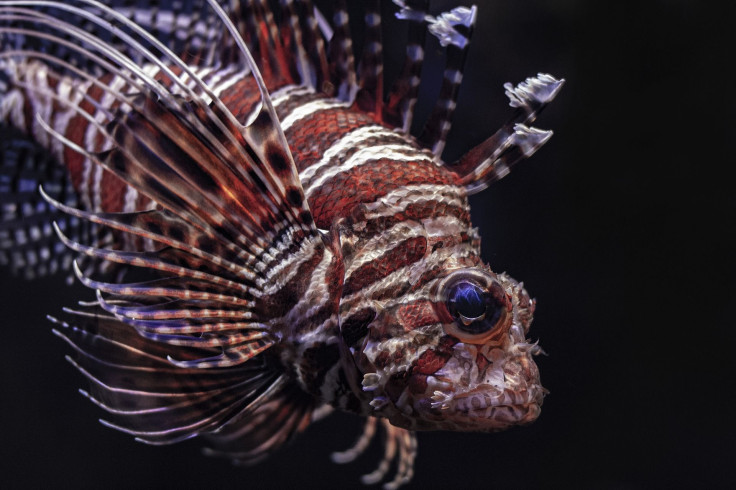Scientists Propose Ways To Manage Lionfish Populations In Mediterranean
KEY POINTS
- Lionfish can reportedly threaten 'biodiversity, fisheries and human health'
- Scientists have come up with a new guide on how to control lionfish populations
- Their recommendations include commercial fishing and creating a supply chain for lionfish products
Invasive lionfish have been proliferating in various waters including in the Mediterranean, so a team of scientists has proposed different ways to manage the species' populations.
Lionfish is a carnivorous fish that's native to the Indo-Pacific but has since spread to other waters. It is an invasive species, and its success is largely due to the fact that it doesn't have known predators and can reproduce "all year long," the National Oceanic and Atmospheric Administration noted. In fact, a female lionfish can release about two million eggs per year.
In addition, lionfish also have venomous spines that help protect them from predators, and they can even survive for months without any food, scientists noted in their new Guide to Lionfish Management in the Mediterranean.
In the new guide, they described the spread of lionfish as the "fastest fish invasion ever reported in the Mediterranean Sea." In fact, they were only first spotted off the coast of Lebanon in 2012 but have since spread quickly, especially in 2015 after the enlargement of the Suez Canal, the University of Plymouth noted in a news release.
"Our research has shown that between 2018-2020 alone, there was a 400% increase in the numbers of lionfish in areas off Cyprus where fishing was restricted within Marine Protected Areas," Professor Jason Hall-Spencer of the University of Plymouth, principal investigator, said in the news release.
"However, we have also seen there is both an understanding within communities of the need for action, and a willingness to get involved," Hall-Spencer added, noting that with the warming waters, they can likely spread even further.
The invasive species was first noticed off the coast of the Lebanon in 2012, with sightings since recorded as far west as Sicily, and north into the Adriatic Sea off Croatia pic.twitter.com/QJdTnjMhHB
— University of Plymouth (@PlymUni) April 11, 2022
In their new guide, the scientists proposed various means to help communities and managers control the lionfish populations. Among their key recommendations are creating a supply chain for lionfish products, developing opportunities for recreational and commercial fishing of lionfish and encouraging the public to "see, eat, and take part in activities to manage lionfish."
They also highlighted the legal changes that will allow lionfish removals and recommended supporting biosecurity measures in the Suez Canal. They suggested adding it to the European Union's list of "invasive species of concern" as well.
As the scientists explained, lionfish can threaten "biodiversity, fisheries and human health." They are already considered a "major pest" in the western Atlantic and eat native fishes in the eastern Mediterranean. In the U.S., for instance, there is concern that lionfish may also kill off helpful species that eat algae, therefore letting seaweed overtake the reefs.
"The proliferation of the lionfish in the Mediterranean is a major threat to our sea's ecosystems," Prince Albert II of Monaco, who is endorsing the new guide, said, as per the news release. "That is why it is important to do all we can to prevent, inhibit and limit it."

© Copyright IBTimes 2024. All rights reserved.












